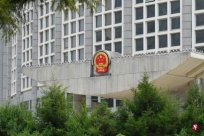The Chinese Academy of Sciences has launched new regulations to prohibit academic opinions from public publication from public publication.
Comprehensive China Youth Daily and Observer.com reported that on August 2, the Chinese Academy of Sciences announced on the official website that the new version of the Chinese Academy of Sciences was approved and approved by the Party Group of the Chinese Academy of Sciences on August 2nd (trial)(Hereinafter referred to as specifications).
It is reported that the behavior specifications of academicians of the Chinese Academy of Sciences were approved by the Presidium of the Chinese Academy of Sciences in September 2014.Compared with the old version of the five chapters and 26 items, the new version of the content has increased to 33 chapters, and the names and contents of some chapters have been adjusted.The new version is divided into general rules, scientific research activities, standards for social activities, standardized work behavior specifications, prohibited behavior and attachment.Among them, the "prohibited behavior" is a new chapter.
The new version of the specifications mentioned that we must focus on cultivating the research team with both virtue and talents.Article 13 of the scientific research activity behavior specifications clearly clearly, it is necessary to focus on the main responsibility and play the role of academic leadership. The on -the -job academician must adhere to the first -tier work of scientific research in his own professional field.Second, go deep into the grassroots and front lines to solve practical problems.
In addition, the new version of the specifications are prohibited by Article 28 of the behavior part, and the academic opinion prohibits the academic opinions that have nothing to do with their own professional fields.It is forbidden to participate in activities such as consultation, evaluation, evaluation, evaluation, and recommendation that are not related to my duties and professional fields.It is forbidden to violate the principles of fairness and confidentiality of activities such as recommendation, review, appraisal and awards.




